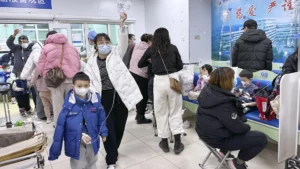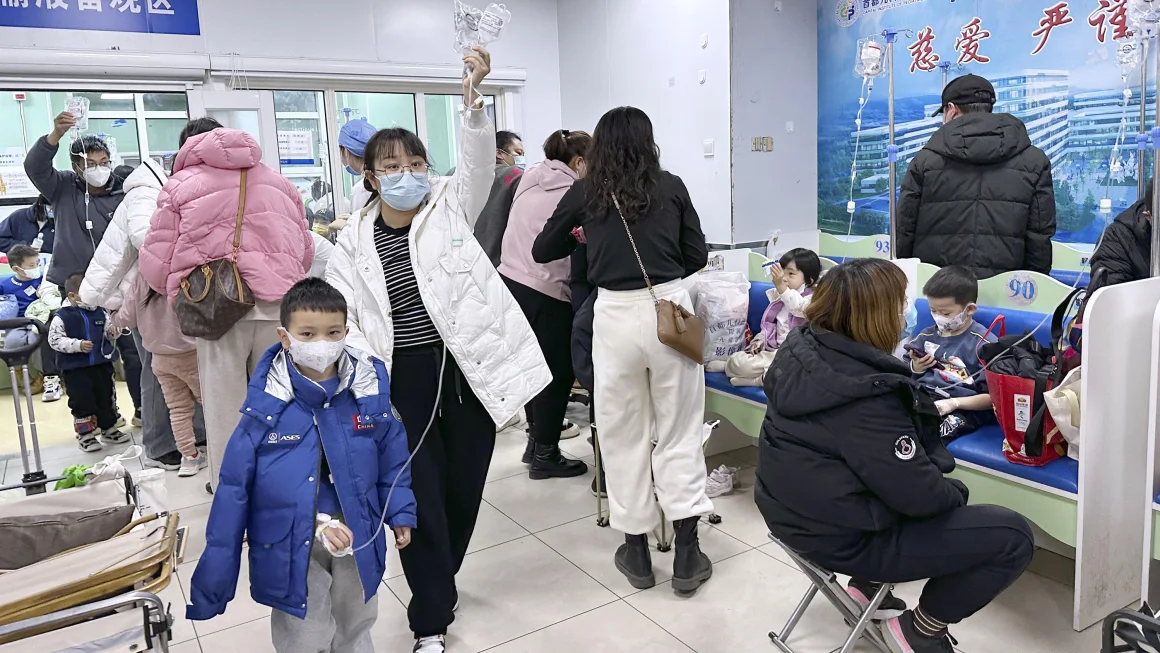
In recent times, global headlines have been dominated by the resurgence of pneumonia outbreaks, echoing in various parts of the world such as Ohio, China, Denmark, France, and the Netherlands. At the epicenter of these outbreaks is Mycoplasma pneumoniae, a bacterium that health experts tie to the surge in community-acquired pneumonia cases. This in-depth exploration aims to dissect the critical facets of Mycoplasma pneumoniae, shedding light on its origins, contagious nature, and the underlying factors contributing to the recent uptick in pneumonia cases.
Understanding Mycoplasma pneumoniae: A Departure from the Ordinary Pathogen
Unlike the viral culprits behind flu, SARS, or COVID-19, Mycoplasma pneumoniae stands out as a bacteria capable of instigating pneumonia by inflicting damage to the linings of the throat, lungs, or trachea. Identified over a century ago in lung disease affecting cattle, it wasn’t until 1944 that scientists acknowledged its role in causing “atypical” pneumonia in humans. Christened after the Greek term for “fungus-formed,” this bacterium boasts unique characteristics that distinguish it from its counterparts.
Mycoplasma pneumoniae’s Dependency and Transmission Dynamics
Dr. Jimmy Johannes, a seasoned pulmonologist, underscores the fact that this bacteria, despite its lack of an extensive structure, thrives on a host for replication. Contrary to some bacteria lingering in the ambient air, Mycoplasma pneumoniae necessitates mammalian cells for effective transmission. With a longstanding history of causing respiratory infections, this bacterium accounts for an estimated 2 million cases reported annually in the United States. Initially labeled as “atypical pneumonia” due to prolonged symptoms and limited antibiotic effectiveness, it has now earned the colloquial moniker of “walking pneumonia.”
Is Mycoplasma Pneumonia Very Contagious?

The contagious nature of respiratory infections stemming from Mycoplasma pneumoniae is undeniable, manifesting through symptoms like cough, fever, shortness of breath, chest pain, and fatigue. Dr. Elizabeth Talbot, a distinguished professor of Medicine, Infectious Disease, and International Health, highlights its predilection for otherwise healthy individuals aged 5 to 20 years. Person-to-person transmission leads to clusters or outbreaks, particularly prevalent in late summer and fall.
Searching for Connections Amid Global Pneumonia Surges
Despite the alarming headlines painting a picture of simultaneous pneumonia spikes worldwide, health officials strive to allay fears by asserting the absence of evidence linking these outbreaks. Dr. Talbot attributes the resurgence to the shift from pandemic emergency measures, as people revert to normal interactions, increased travel, and a relaxation of preventive practices like mask-wearing and frequent handwashing. The concept of “immunity debt” emerges as a plausible contributing factor, as diverse populations emerge from varying levels of lockdown measures, rendering them susceptible to respiratory diseases.
Addressing the Lingering Questions: Are We Prepared for Future Outbreaks?
As we grapple with the current wave of Mycoplasma pneumoniae outbreaks, a crucial question lingers: Are we adequately prepared for future respiratory challenges? Strengthening global public health infrastructure, bolstering research into respiratory pathogens, and fostering international collaboration are pivotal steps to fortify our defenses. Learning from the current scenario, a proactive approach that combines scientific advancements with community engagement is essential to mitigate the impact of future outbreaks.
Should We Fear the Specter of Broad Community Pneumonia Spread?
In the immediate context, experts counsel against succumbing to panic. Recent outbreaks, particularly among schoolchildren, are deemed within the realm of normalcy. Mycoplasma pneumoniae tends to orchestrate cyclical outbreaks every 4 to 8 years in the general population, with heightened risks in communities living in close quarters, such as military barracks and prisons. Understanding the cyclical nature of these outbreaks provides a nuanced perspective, mitigating undue alarm.
Looking Ahead: Empowering Communities Against Respiratory Threats
As we navigate the complexities of Mycoplasma pneumoniae outbreaks, a proactive approach to community well-being becomes imperative. Empowering communities through public health initiatives, promoting vaccination awareness, and fostering a culture of respiratory hygiene can fortify defenses against the ongoing and future respiratory threats. By maintaining a collective commitment to health and well-being, we can not only weather the current challenges posed by Mycoplasma pneumoniae but also build resilience for whatever respiratory challenges lie ahead.
Building a Resilient Future: Collaboration in the Face of Uncertainty
Looking ahead, the key to sustained community well-being lies in collaborative efforts. Strengthening the synergy between healthcare professionals, policymakers, and the public is crucial for creating a resilient framework against respiratory threats. This involves continued investment in research, development of advanced diagnostics, and the swift implementation of effective treatment protocols.
In addition, fostering open communication channels is essential. Regular updates on emerging respiratory threats, vaccination campaigns, and preventive measures empower individuals to make informed choices about their health. Encouraging a community-driven approach ensures that everyone plays a part in minimizing the spread of infections and mitigating the impact of future outbreaks.
As we stand at the intersection of the present challenges posed by Mycoplasma pneumoniae and the uncertainties of what lies ahead, a united front is our strongest defense. By embracing a collective responsibility for health, we not only protect ourselves but also contribute to the well-being of our communities, laying the groundwork for a healthier and more resilient future.
Global Solidarity: A Call to Strengthen International Cooperation
In the ever-evolving landscape of respiratory threats, the importance of global solidarity cannot be overstated. International cooperation is paramount in facing challenges that transcend borders. Collaborative research initiatives, the sharing of data, and joint efforts in developing and distributing vaccines are integral components of a robust global response.
A united front against respiratory threats requires nations to come together, transcending geopolitical boundaries. This entails the creation of frameworks for rapid information exchange, the establishment of emergency response protocols, and the equitable distribution of medical resources. By fostering a sense of shared responsibility, the global community can better prepare for and respond to the uncertainties that future respiratory threats may bring.
In conclusion, as we envision a future that is resilient against respiratory challenges, the pillars of community empowerment and global solidarity stand tall. By taking proactive measures at the local level and strengthening international collaboration, we not only protect ourselves but also contribute to the creation of a healthier and more secure world for generations to come.
Staying Informed and Vigilant Amidst Mycoplasma Pneumoniae Outbreaks
As we navigate the landscape of Mycoplasma pneumoniae outbreaks, staying informed and vigilant is key to safeguarding our communities. The recent surge in pneumonia cases globally underscores the importance of understanding this bacteria and adopting preventive measures. By prioritizing good hand hygiene, considering mask-wearing in vulnerable situations, and remaining informed about the evolving situation, we can collectively contribute to minimizing the impact of Mycoplasma pneumoniae and other respiratory challenges. Stay vigilant, stay informed, and let’s work together to promote respiratory health in our communities.
